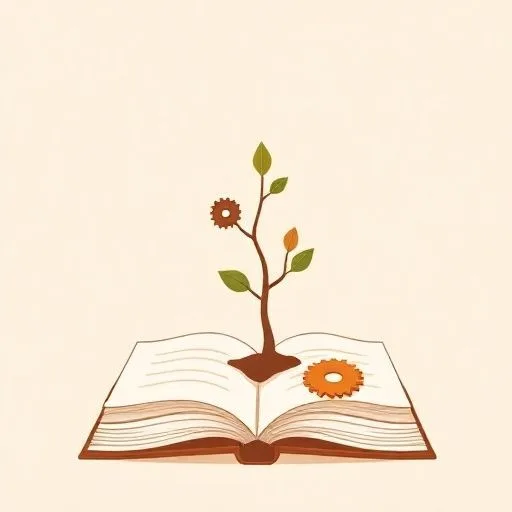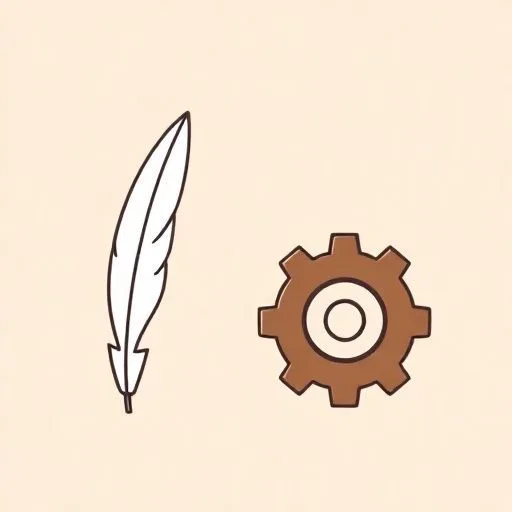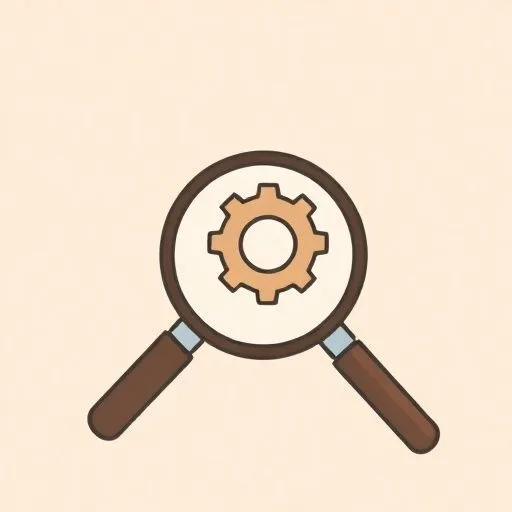
Have you ever thought what it’d be like waking up to news that a machine might take your job? I felt that chill when I first heard about AI in my daughter’s classroom.
Just last week, while walking my 7-year-old daughter to her local school, I realized how AI tools can feel as daunting as those old mechanized looms once did.
As AI reshapes our professional landscape, their story offers crucial perspective on change. The question isn’t whether to accept or reject technological progress, but how to wield it wisely while preserving our humanity. This journey through history has never felt more relevant!
Were the Luddites Technophobes or Victims of Unfair Change?

When we hear ‘Luddite,’ most people imagine enraged workers mindlessly smashing machines. But historical research reveals a far more nuanced reality. These textile artisans weren’t technophobes—they were highly skilled craftspeople whose entire way of life was being dismantled almost overnight.
The new machinery didn’t just threaten their jobs—it devalued years of specialized training, destroyed community-based production, and replaced safe, skilled work with dangerous factory labor. Sound familiar? Much like today’s AI disruption, the Industrial Revolution created winners and losers, and those left behind weren’t simply experiencing ‘creative destruction’—they were facing genuine crisis.
Researchers now note that the Luddites weren’t just poor laborers but included skilled artisans and even some professionals who understood their expertise was being devalued. Their famous machine-smashing wasn’t blind rage but a dramatic protest against an economic system that prioritized efficiency over people.
As we stand at another technological inflection point with AI, this historical lens helps us see that resistance to technological change often signals deeper concerns about fairness, equality, and human dignity—not simple fear of the new. What if our own resistance to AI evolution isn’t about rejecting progress, but about protecting something we hold dear?
So, how do those 19th-century struggles translate into our own AI dilemmas? Let’s connect the dots.
How Does the AI Revolution Mirror the Industrial Revolution?

The parallels between the Industrial Revolution’s disruption and today’s AI transformation are striking! Similarly to how spinning jennies and water frames displaced skilled weavers, generative AI and automation systems are transforming job landscapes across industries.
Research shows that much of the contemporary anxiety about AI mirrors the concerns raised during the rise of mechanized production—fears about job loss, devaluation of human skills, and the ethics of workplace technology deployment.
But here’s where our understanding can grow: the Luddites weren’t fighting against technology itself, but against its inhumane deployment. Neo-Luddites in our modern era carry this torch, questioning the ethical implications of technological advancement without necessarily rejecting progress outright.
In our workplaces, this manifests as professionals asking important questions: How is AI being implemented? Are we considering human impact? Who benefits most from these changes? These aren’t just philosophical questions—they shape our professional futures!
As we watch algorithms take on tasks from customer service to data analysis, we’re witnessing a similar transition to what happened in those textile mills. The difference today? We have the gift of hindsight—we can learn from history’s playbook instead of repeating its mistakes. These modern AI workplace transformations offer us a chance to do better than our industrial predecessors.
How Can We Balance AI Advancement with Human Dignity?

So how do we navigate this delicate balance between embracing technological advancement while preserving human dignity in our work? The answer doesn’t lie blindly accepting or rejecting change, but in thoughtfully stewarding the transition.
Consider this: when planning a journey, we use tools to enhance rather than replace our judgment—we don’t hand over the map when we might need to adjust our route. Similarly, in our professional lives, we can approach technology as tools that augment our unique human capabilities rather than viewing them as replacements.
The most resilient professionals aren’t those who resist all change, but those who continuously adapt their skills to complement new technologies. This might mean developing abilities in areas where humans excel: emotional intelligence, creative problem-solving, ethical judgment, and building authentic human connections.
These are domains where technology struggles to match human nuance. As AI handles more routine tasks, the value of uniquely human skills actually increases. In our AI workplace evolution, these human capabilities become more valuable than ever!
The key is lifelong learning, not as a reaction to fear, but as a commitment to growth—a core professional value that remains unchanged in any technological era. Finding balance between technological change and human dignity becomes our central challenge.
Why Does Modern Work Need a Healthy Luddite Skepticism?

There’s a valuable Luddite lesson in all of us—the wisdom of thoughtful skepticism about technological implementation. Modern workplaces thrive when we question how technology is being used rather than accepting it blindly.
This might mean asking uncomfortable questions: Does this implementation actually improve working conditions? Does it create more meaningful work, or simply more monitoring? Does it distribute benefits equitably across all levels of an organization? These aren’t just theoretical concerns—they have real impact on our daily professional experience!
Healthy skepticism isn’t opposition—it’s stewardship. Like experienced travelers who remain cautious in unfamiliar places, wise professionals maintain a balanced perspective on new tools. Edward Snowden’s influence among modern tech skeptics reminds us that questioning power structures surrounding technology isn’t just acceptable but sometimes necessary.
In our own workplaces, this might manifest as advocating for more transparent AI decision-making, pushing back against implementations that dehumanize processes, or suggesting alternatives that better serve human needs. The original Luddites cried out for equitable labor rights during their time of massive change. Today’s professionals can carry that torch by voicing thoughtful concerns about workplace technology implementations that ignore human impact.
This skepticism in the face of rapid technological change helps preserve human dignity in our AI workplaces. It’s not about slowing progress—it’s about making sure progress moves in the right direction!
How Can We Shape an AI Future That Works for Everyone?

The question isn’t whether technology will change our workplaces—it’s how we’ll ensure that change serves humanity, not the other way around.
As we stand at this technological inflection point, the Luddite legacy offers us more than caution—it reminds us that we have agency in shaping how technology affects our workplaces. Unlike the 19th century workers who faced governmental suppression of their concerns, today’s professionals have more tools than ever to influence workplace change.
We can build new social contracts around technology—agreements that acknowledge progress while ensuring its benefits flow broadly across society. This requires moving beyond narrow individual adaptation to collective action: forming communities around ethical technology implementation, advocating for policies that protect workers during technological transitions, and reimagining work itself as something that evolves with technology rather than being replaced by it.
The most successful technological transformations throughout history haven’t been those imposed from above, but those shaped with broad input from those affected by change. In the crisp autumn air of progress, we have the opportunity to learn from past disruptions while creating a more inclusive future.
Sipping coffee with my daughter, I’m reminded that whether it’s looms or chatbots, our shared values—curiosity, kindness, resilience—guide us through change.
Source: Revenge of the Luddites: Part II, Daily Reckoning, 2025/09/09
